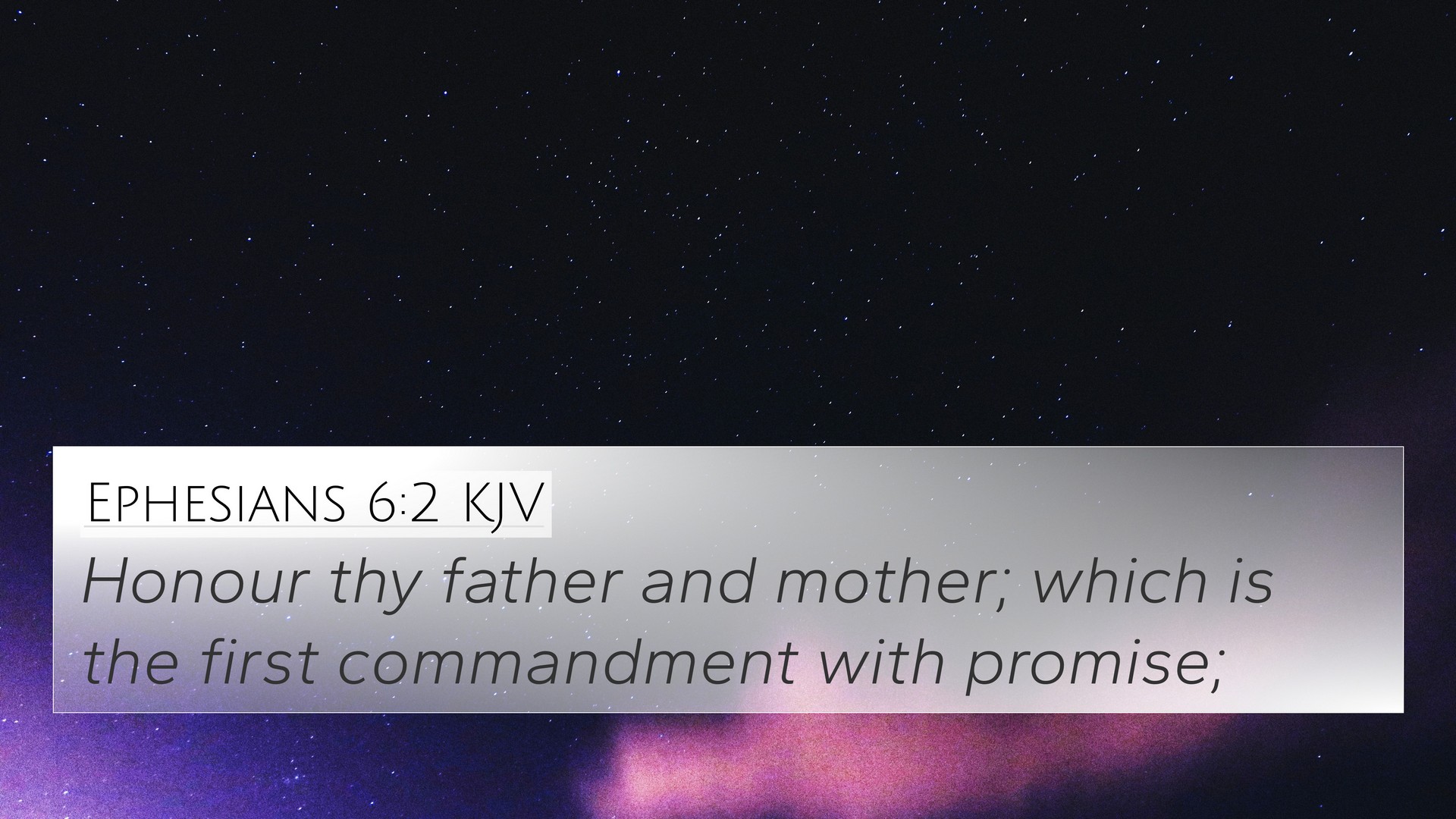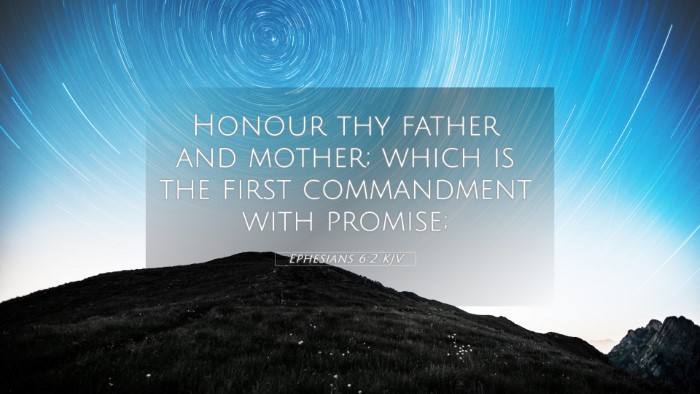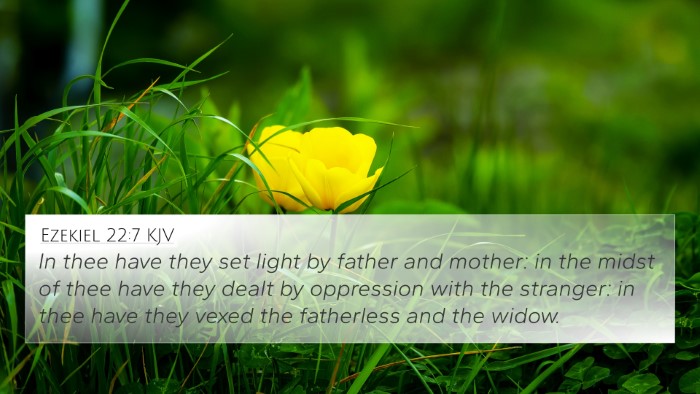Ephesians 6:2 - Understanding the Verse
Ephesians 6:2: "Honor your father and mother," which is the first commandment with promise.
This verse emphasizes the significant commandment of honoring one's parents, derived from the Old Testament law, specifically the Ten Commandments.
Insights from Public Domain Commentaries
Matthew Henry's Commentary:
Matthew Henry notes that this commandment highlights the importance of respect and obedience towards parents. It is presented not just as an obligation but as part of a divine promise of well-being and long life. He argues that God ties the temporal welfare of humanity to the honoring of parents, suggesting that such reverence fosters societal harmony.
Albert Barnes' Commentary:
Albert Barnes suggests that this verse underscores one of the fundamental principles of social order. He expresses that honoring parents is foundational to a well-functioning society. Barnes emphasizes that this commandment carries with it a promise of longevity, linking it to the recipient's well-being and prosperity. He also connects this directive to New Testament teachings about family and authority.
Adam Clarke's Commentary:
Adam Clarke elaborates on the implications of this commandment. He indicates that true honor involves not merely an external demonstration of respect but also a deep-seated affection and loving regard for one’s parents. Clarke points out that this commandment had broader societal implications in the Biblical context, shaping family structures and governance.
Cross-References and Connections
To gain a comprehensive understanding of Ephesians 6:2, it is valuable to explore its connections with other biblical texts. Here are several verses that relate closely:
- Exodus 20:12: "Honor your father and your mother, that your days may be long in the land that the LORD your God is giving you." - Establishes the original context of the commandment.
- Deuteronomy 5:16: "Honor your father and your mother, as the LORD your God has commanded you, that your days may be long, and that it may go well with you in the land that the LORD your God is giving you." - Reiterates the importance of the commandment.
- Colossians 3:20: "Children, obey your parents in everything, for this pleases the Lord." - Connects the commandment to a broader principle of obedience within the hierarchy of family relationships.
- Proverbs 1:8: "Hear, my son, your father's instruction, and forsake not your mother's teaching..." - Highlights the value of parental wisdom.
- Proverbs 6:20: "My son, keep your father's commandment, and forsake not your mother's teaching." - Reemphasizes familial obedience.
- Matthew 15:4: "For God commanded, 'Honor your father and your mother,' and, 'Whoever reviles father or mother must surely die.'" - Reflects on Christ's teaching regarding the severity of disregarding this commandment.
- Ephesians 6:1: "Children, obey your parents in the Lord, for this is right." - Directly ties to Ephesians 6:2, extending the principle of honoring parents.
Thematic Connections and Interpretations
Honoring parents goes beyond mere obedience; it entails recognizing their authority, appreciating their sacrifices, and providing care as they age. The command is vital in establishing family loyalty and societal stability. Here are some thematic connections that emerge from Ephesians 6:2:
- Social Order: The health of a society is linked to family integrity, stemming from the parent-child relationship.
- Spiritual Order: Obedience to parental authority is seen as obedience to God, a reoccurring theme throughout Scripture.
- Moral Duty: There lies a moral obligation to respect and care for those who have given life and guidance.
Understanding Biblical Authority and Family Roles
This verse not only speaks to children but also highlights the divine order in which God has established family dynamics. The respect due to parents signifies a hierarchy of authority, interlinked with scriptural teachings about the family unit's importance. The interconnectedness of such teachings promotes a framework for understanding one's place within the broader societal context.
Tools for Further Study
For those looking to delve deeper into this verse and its connections with other scriptures, several resources can aid in exploring Bible verse cross-references:
- Bible concordance - A reference tool for finding links between verses.
- Bible cross-reference guide - A compilation of verses aiding in comparative study.
- Cross-referencing Bible study - Methods to analyze verses in context with one another.
Conclusion
The command in Ephesians 6:2 illustrates a fundamental biblical principle that resonates with themes of respect, familial duty, and societal stability. By understanding the nuances of honoring parents, believers can appreciate the larger framework of God's design for families as outlined throughout scripture.
In engaging with cross-references and thematic connections, individuals can better grasp the implications of this commandment and explore the profound narrative of love, respect, and obedience found in the Christian faith.











